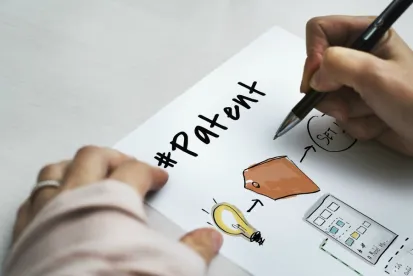CRISPR patents continue to face priority challenges in Europe. Following an earlier revocation of CRISPR patent EP2771468 based on a successful priority challenge, another foundational CRISPR patent EP3241902, co-owned by University of California Berkeley (UCB), was revoked in its entirety last month by the European Patent Office (EPO) based on an invalid priority claim. This is the first significant loss of UCB’s CRISPR patent rights in Europe.
UCB patent EP3241902 (“the ‘902 patent”) has been revoked following oral proceedings at the EPO on April 12 and 13, 2021. As is common for CRISPR patent challenges at the EPO, multiple opponents sought revocation of the patent on multiple grounds. While the written decision setting out the grounds for revocation by the EPO Opposition Division (OD) has not yet been published, preliminary non-binding opinions by the OD cite a pivotal June 28, 2012 UCB publication (“Jinek 2012”) as potentially relevant prior art to support revocation of the patent on the basis of lack of inventive step under Article 56 EPC.
Notably for the ‘902 patent, its earliest priority date of May 25, 2012 (US 61/652,086; “P1”), antedated the Jinek 2012 publication date, and a successful challenge of the priority claim would be required in order to make Jinek 2012 available as prior art and a basis for revocation. In contrast to the successful priority challenge of the Broad Institute’s revoked CRISPR patent EP2771468, which relied on a formal defect in ownership, the Opponents of the ‘902 patent instead argued that the priority claim was invalid because inter alia P1 failed to render the claimed invention plausible and that the skilled person faced an undue burden in carrying out the claimed invention.
In the first preliminary non-binding opinion rendered on February 13, 2020 (“the first opinion”) the OD initially considered that ‘902 patent was entitled to its earliest priority date, and therefore Jinek 2012 was not considered to be prior art for the assessment of inventiveness. In support of this preliminary determination, the OD placed considerable weight on UCB’s extensive reference to post-filing data that allegedly supported enablement (§8.1.10.7 of the first opinion, citing Section H.V of UCB’s June 29, 2019 submission). For example, UCB had argued that the sufficiency of the disclosure of P1 was evidenced by the fact that multiple groups independently were able to carry out aspects of the invention following UCB’s Jinek 2012 publication (e.g., ¶914 of UCB’s submission).
In view of further submissions by the Opponents and UCB in the run up to previously scheduled oral proceedings (that were cancelled due to COVID), the OD rendered a revised preliminary non-binding opinion on September 29, 2020 in which the OD reconsidered its position on the enablement in view of P1. This was primarily based on submissions by Opponents O1 and O2 (see, e.g., Section 6) focusing on the lack of disclosure provided in P1 vis-à-vis the claimed subject matter. Notably, the OD provisionally concluded that the invention as claimed in the ‘902 patent was not plausible in view of the content of P1, and therefore UCB’s post-filing evidence could not remedy the deficiency. The OD also agreed with additional arguments by O2 that there was critical knowledge in Jinek 2012 that was not included in P1. The OD elected to defer further discussions of novelty and inventiveness to the oral proceedings, at which the relevant prior art would be determined in view of its decision on entitlement to priority. Ultimately, at these proceedings entitlement to priority from P1 was denied, and the patent was revoked in view of Jinek 2012.
UCB has filed a notice of appeal against the revocation of the ‘902 patent.
This latest revocation of UCB’s patent indicates that priority challenges, whether based on formal defects or the substantive content of the priority document, continue to be useful lines of challenge at the EPO.
Following key technological advances in 2012-2013, CRISPR genome editing has been the subject of cutting edge research and development by biotech and pharmaceutical companies seeking to translate basic research into new therapeutic methods. Consequently, CRISPR technology also has been the subject of numerous patent office proceedings worldwide as companies seek to clear or clarify the patent landscape in view of potentially dominating patent filings that may impact freedom to operate.
The EPO has emerged as a particularly active arena for patent challenges via its post-grant opposition procedure in which a party can challenge the validity of an issued European Patent within nine months of grant. In addition to a relatively compact timeline (the EPO has targeted a 15-month pendency following a 2016 procedural streamlining), EPO opposition also serves as an early, centralized opportunity to seek revocation of a patent in lieu of lodging individual challenges in the nearly 40 EPO member states in which a European patent may be validated. Additionally, a party may choose to file an opposition via a third-party “straw man” in order to obscure their identity and interest in the proceeding. Opposed European CRISPR patents include those owned by University of California Berkeley, University of Vienna, and Emmanuelle Charpentier; Broad Institute, MIT, and Harvard; and Sigma-Aldrich.




 />i
/>i

